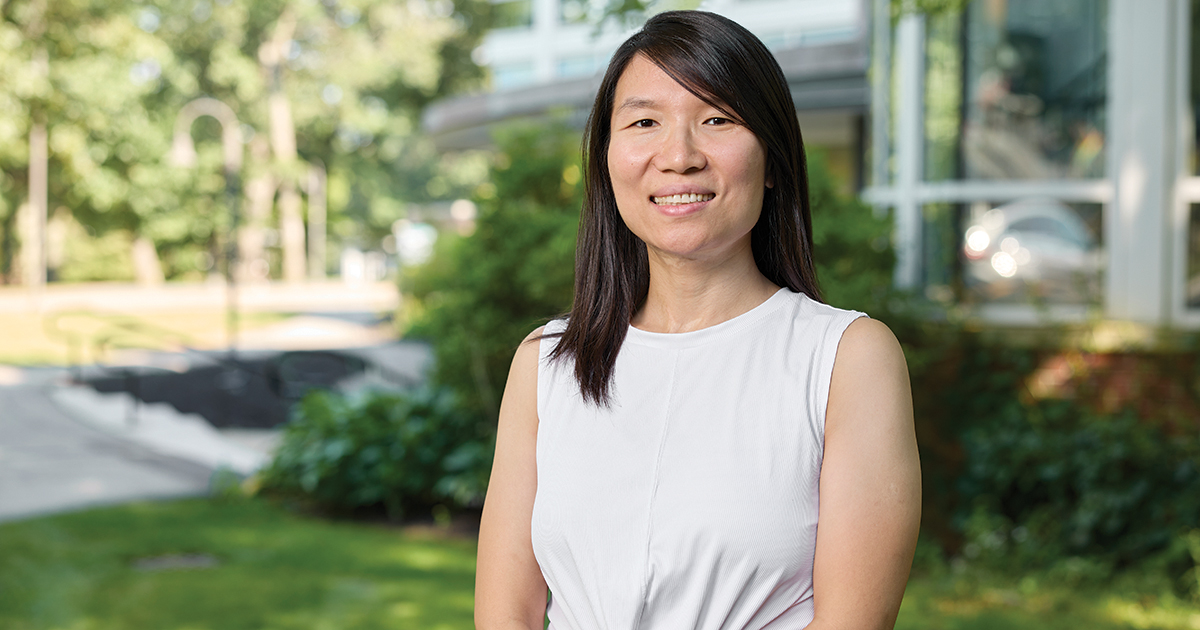Office Hours: How Media Shape the Environment

Xinghua Li wants Babson students to consider how media have shaped human interactions with nature, from early American settlers who shared fireside tales of wild animals to the hiking trail apps and TikTok cat videos of today. Li, an associate professor of media studies in History & Society, has particular interest in the intersection of the environment and media.
“I grew up in China during its economic boom years and witnessed heartbreaking environmental destruction as the price for human prosperity,” Li explains. “I didn’t remember seeing the blue sky or the stars until I came to the U.S. (for graduate school),” she adds. Her first book, Environmental Advertising in China and the USA: The Desire to Go Green, explores the “green” ads in China and the United States that promise to do social good by selling eco-friendly products. Her analysis finds that such advertising functions “more as consumer therapy, to make everyone feel better when buying more,” and provides less environmental benefit than consumers hope.
BABSON MAGAZINE: Read the complete Winter 2023–2024 issue.
Li’s current research examines China’s recent boom in outdoor recreation and the influence of the technology people use in nature, including smartphones, apps, and GPS. This led Li to create a popular course called Mediating the Wild. Students learn the history of media, from oral storytelling to digital media, and discuss how the American view of nature has evolved. Colonists tended to fear and resent the wild, Li says, but as the amount of untamed land in the United States shrank over time, a more romantic view of wilderness emerged.
“We need to know its mechanisms so that we can better inoculate against its negative effects … and use media to our benefit.”
Xinghua Li, associate professor of media studies
Li says students are particularly energized when the discussion turns to animals. Wildlife cameras and computer chip-tracking give scientists and the public unprecedented information about creatures from ants to sharks. Although this information can bring us closer to the natural world and increase empathy for animals, students hold a debate about such monitoring, with some taking the position that it might violate animals’ privacy.
“If we are complaining about social media invading our privacy, treating us as objects of surveillance … (maybe) I shouldn’t be watching what wild eagles are doing in their nest,” Li suggests.
Students also use emerging science around “soundscapes.” They head into the woods near the Babson campus and use their phones to record natural sounds there. They convert these recordings into spectrograms, wave forms that help them identify individual animals and other sounds. They use the data to theorize about the health of the ecosystem, Li says.
A main goal of the course is to develop students’ critical-thinking skills, asking them to closely examine how media influence their experience of the natural world. It’s impossible to remove all media from the equation, Li says. But “we need to know its effects. We need to know its mechanisms so that we can better inoculate against its negative effects … and use media to our benefit.”
Posted in Insights






